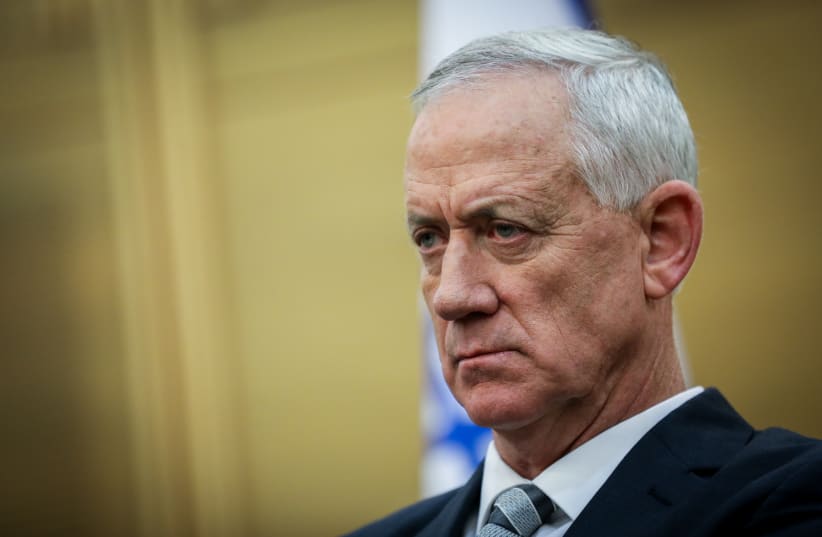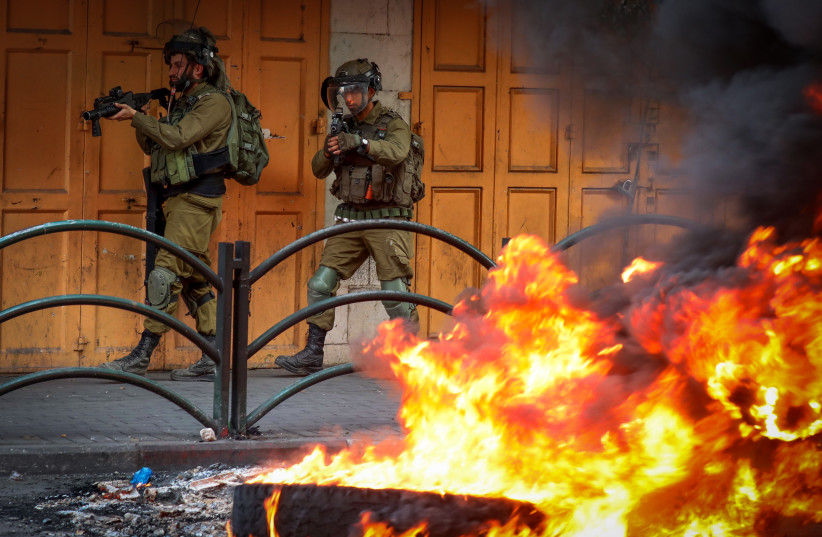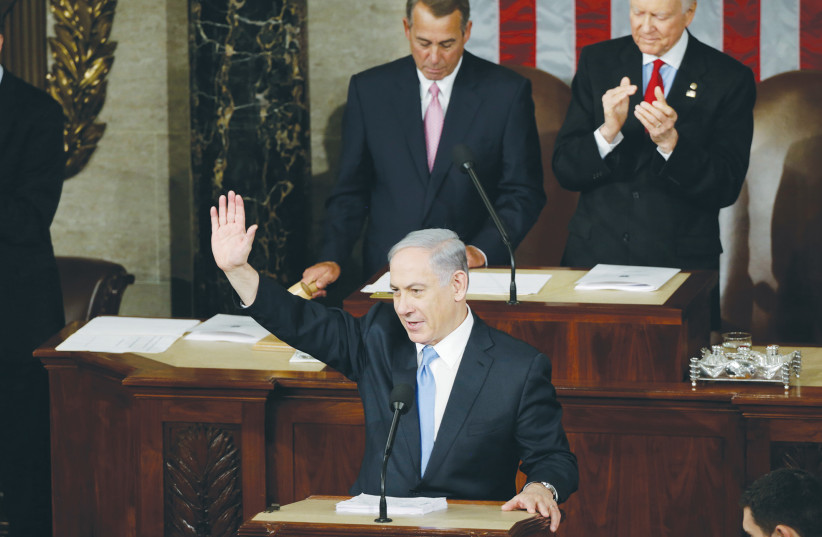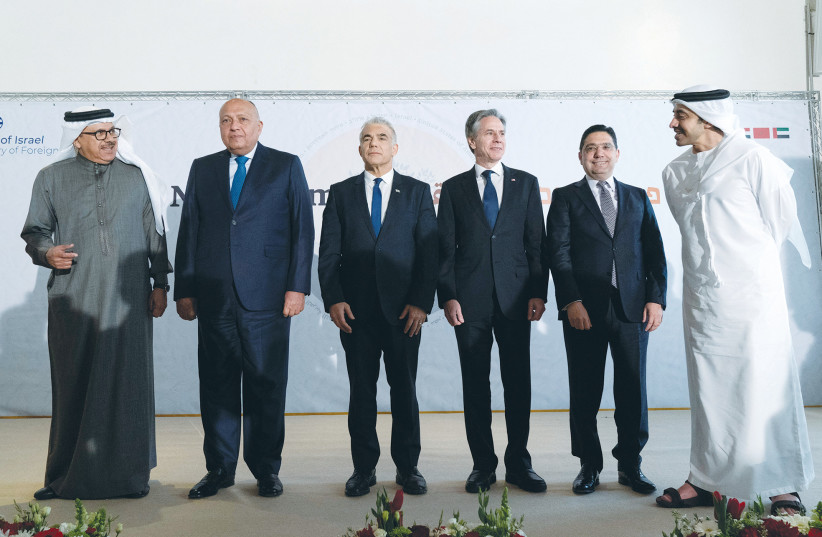Israel has the capabilities to strike Iran’s nuclear facilities, but incoming Prime Minister Benjamin Netanyahu must consider the issue “carefully” before giving the order, outgoing Defense Minister Benny Gantz said.
“Israel has the ability to act in Iran. We have the readiness, development capabilities, and long-term plans we are managing. We need to prepare for this possibility, and we will also need to consider this issue very carefully before carrying it out,” he told military reporters on Tuesday.
Such preparations are believed to cost over NIS 7 billion.
On Friday Likud MK Tzachi Hanegbi said that incoming prime minister Benjamin Netanyahu would likely order a strike on Iran’s nuclear facilities if the US does not come through with a nuclear deal and fails to take action against Tehran.
Netanyahu, Hanegbi said, “will act, in my assessment, to destroy the nuclear facilities in Iran. When there is no choice, someone needs to take command — it will be Netanyahu.”
According to the outgoing defense minister, the option to strike Iran “should be prepared and this issue should also be considered very carefully before implementation.”
What security challenges will a new defense minister face?
Gantz told reporters that “the last time the IDF was at the highest level of readiness, I was the Chief of Staff and as it was published - it was decided then not to do so-by the same prime minister who is expected to take office.”
Israel has been engaged in its war-between-wars campaign against Iran for close to a decade and most recently was accused of striking a fuel convoy near AlBukamal on the border between Syria and Iraq.
According to Gantz, “we have had significant successes in the northern arena.”
The competition between Israel and Iran, Gantz said, is on every level from technology, academia, space, and the transfer of weapons to terror organizations.
"I predict that the Iranian hostility will receive a boost as a result of the relations with Russia and the ongoing struggle between the world powers. And this will have an impact on the entire region.”
Impact of the Abraham Accords
Israel signed normalization agreements with Gulf States as part of the Abraham Accords in 2020. Since then, the defense establishment has had over 200 meetings with representatives from Arab countries who signed the accords and who face similar threats from Iran.
"Everything possible must be done to preserve and expand the regional architecture - also vis-a-vis Iran, but not only,” Gantz said, adding that “when you communicate with each other you have the ability to get to know each other, share abilities, and reach the level of joint exercises, intelligence sharing and more.”
According to reports, Israel has sold the United Arab Emirates at least two Israeli Barak air defense systems to defend against a range of aerial threats launched by Iran.
Satellite images released by Tactical Report, which covers events in the Gulf States and the Middle East, showed the batteries and an Elta EL/M-2084 radar deployed near al-Dhafra airbase near Abu Dhabi.
First reported by Breaking Defense, the batteries are the first of what could be a substantial contract for additional systems to protect sensitive sites that have been targeted by missiles and drones launched by Houthis rebels in Yemen.
Israel and the UAE have worked together covertly for years against Iran’s hegemony, and according to foreign reports have behind closed doors improved their intelligence-sharing and military relations in order to be prepared for Iranian threats.
Even prior to the normalization of ties with Gulf countries, Israel started talking about a regional air defense to protect it from threats like Iranian drones and missiles. Once the ties were formalized with the signing of the Abraham Accords in 2020, Israeli officials began openly talking about a Middle East Air Defense system.
According to Gantz, it is already operational and has successfully intercepted aerial threats. The alliance has reportedly brought together Israel and Arab states in the Middle East around a shared table in order to defend their countries from Iran and its proxies who have increased their attacks, some of them deadly, in recent years.
The rise of Israeli extremism
After two and a half years as Defense Minister, Gantz is worried not only about the threat that Iran and the ongoing terrorism by Palestinians pose to Israel but the rise of extremism in The Jewish State.
"We have an excellent army and a security system with amazing operational capabilities. When you call the IDF or the Ministry of Defense - they answer. But what really bothers me is not related to security, but the extremism in Israeli society,” he told journalists ahead of leaving office.
“The extremism in society and in the government is what bothers me.”
Gantz is expected to be replaced by Likud MK Yoav Gallant or Religious Zionism chair Bezalel Smotrich.
Whoever takes office will be faced with six main strategic challenges, including strengthening internal security, governance, and unity. The incoming defense minister will also have to continue to develop national infrastructure in the Negev and Galilee, maintain Israel’s legitimacy in the international community and strengthen the relationship with the Diaspora.



